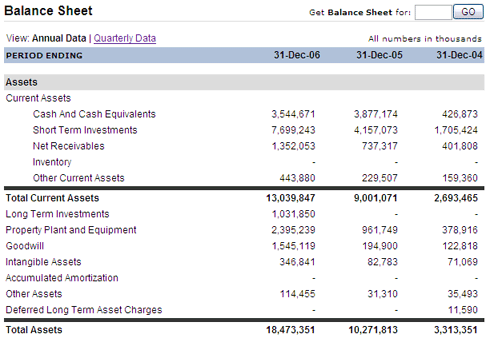Small Business Accounting The basics
Post on: 9 Август, 2015 No Comment

by admin on August 18, 2011
Small business accounting is perhaps one of the most difficult challenges that business owners perceive. This is because accounting for a small business is not their forte. For most small business owners, they go into a start up because they are good at providing a particular service. Be this a catering business, contracting business or being a wedding planner.
Introduction to Small Business Accounting
To be successful at small business accounting one does not need to be a wizard at math. Being organized in keeping track of your cash flow is the key to good accounting for a small business.
Good accounting for a small business also means that you are handling the financing of your business well. Since capital for start up is either taken from loans or from leasing equipment and other assets, you can be sure to formulate a good plan to cover your expenses.
Small business accounting is also important because of the tax implications. As the business owner it is your duty to file taxes properly to avoid getting any penalties.
At the end of the day, small business accounting simply means keeping the records clean for your business. You take in all of what you have earned and then subtract your expenses, what you have left is your income.
For a start up business that relies on financing, accounting takes a crucial role because it tells you if you are earning or not. Your income is then projected so you can see if you are earning enough to cover any debts or seed money infused into the business. Seeing how your financial standing looks like will guide you in making wiser decisions in your business.
Below is a simple overview of some small business accounting terms:
Revenues or earnings:
1. Payment for services rendered – labor, consultation fees and the like
2. Payment for goods sold – products, materials, etc.
Expenses:
1. Leasing expenses – rental cost you pay for equipment, etc.
2. Cost of goods sold – what you paid for your inventory
3. Office supplies – necessary items for your office
4. Salaries – your payment to your staff
5. Representation costs – dining or entertainment expenses, these are usually for taking out prospective clients although only 50% is usually deductible
6. Depreciation costs – for assets you own that decrease in value over time, this can be an allowable expense
Small business accounting is then just taking the total of the two and then subtracting the expenses from the earnings. Your income of profit is the difference. These profits are then subjected to taxes to make your total profit for the year.
Small business accounting is simple and straightforward because of the scale of the numbers involved. It just seems more difficult because it is often up to owner to do this by himself. But through proper and disciplined book keeping, you can make Accounting for a small business a habit and it will get easier over time.
The important thing is to get the system in place right off the bat so you can track down all expenses and income properly.
How Financing Options Impact Small Business Accounting
Small business accounting is affected by the method of how have taken in financing. First, this impacts the period of the return of investment you put in. next it also impacts what you can claim as deductibles or expenses.
The amount of time a business is able to get returns on the initial investment is taken by dividing the investment amount by the monthly income. This is especially important when you have taken a loan because you do need to pay off debts in a certain amount of time.
Good Business and Marketing Practices.
Use free marketing tools. The internet and social networking sites are great marketing tools. There are a lot of free sites and online coupon offers you can participate in. this makes for good and free marketing, at very low costs.
Save your receipts. Official receipts are a record of what you have bought and what you have sold. A well receipted accounting record can go a long way in helping you file taxes and not end up paying too much in terms of taxes.
Treat the business an entity in itself. In short, you are not the business and the business is not you. Don’t mix personal expenses with business ones, this will only confuse the records and you might end up losing more money.
Treat small business accounting as an integral part of operations and you’ll see your business do well.














